MercoPress. South Atlantic News Agency
Tag: US dollar
-
Thursday, December 1st 2011 - 05:53 UTC
US and EU stock soar following on central banks’ decision to provide dollars
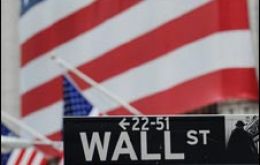
Global stocks and the Euro rallied on Wednesday after the world's leading central banks agreed to cut the cost for European banks to borrow much-needed dollars.
-
Thursday, September 15th 2011 - 18:39 UTC
Major Central banks come to the rescue of Euro commercial banks
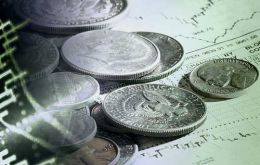
Major central banks around the world will cooperate to offer three-month US dollar loans to commercial banks in order to prevent money markets from freezing up because of Europe's sovereign debt crisis.
-
Monday, August 8th 2011 - 04:33 UTC
Brazil remains faithful to the dollar and has no plans to sell US Treasuries

Brazil has no plans to sell US Treasuries or change its foreign currency reserves holdings as a result of Standard & Poor’s downgrade of the US’s credit rating, a government official said.
-
Monday, August 8th 2011 - 04:14 UTC
China warns US on ‘debt addiction’; demands global supervision of dollar issues
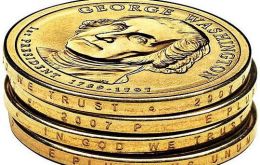
Beijing bluntly criticized the United States after the superpower's credit rating was downgraded, saying the “good old days” of borrowing were over. S&P cut the US long-term credit rating from top-tier AAA by a notch to AA-plus on yesterday, over concerns about the nation's budget deficits and climbing debt burden.
-
Friday, August 5th 2011 - 07:42 UTC
Black Thursday in US and Europe turns into black Friday in Asia
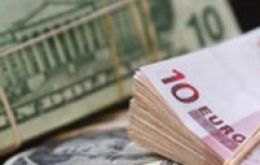
Asian stock markets have slumped on Friday, extending a global equity sell-off after Wall Street had its worst day in more than two years. Japan's main Nikkei 225 index shed 3.4% to 9,329.75. South Korea lost 4.2%, Australia slid 2.4% and China's Shanghai SE Composite Index was down 2%.
-
Thursday, August 4th 2011 - 06:36 UTC
July marked the second largest net inflow, in record, of dollars into Brazil: 15.8bn

Brazil registered its second-largest volume of net monthly foreign-exchange inflows on record in July. Net dollar inflows in the month reached 15.83 billion, compared with 2.56 billion in net outflows in June and only 713 million in net inflows in July last year.
-
Thursday, August 4th 2011 - 06:32 UTC
While the world rejects flood of dollars, in Argentina it’s a ‘flight to safety’
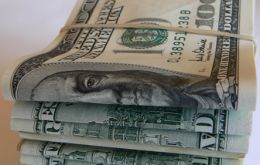
While in the rest of South America governments are trying to make the inflow of US dollars more difficult in Argentina the greenback is in great demand as the coming presidential election has triggered a solid “flight to safety”.
-
Friday, July 15th 2011 - 06:13 UTC
Argentine central bank purchases 500m dollars to stop appreciation of the Peso

The Argentine Central bank has purchased so far this week 500 million US dollars to ensure that the country’s exporters retain a favourable exchange rate and importers are not that tempted to buy foreign goods.
-
Friday, July 15th 2011 - 06:09 UTC
“Grain prices are more linked to the US dollar than to food demand”

“Saving in US dollars or in soybeans is the same” cautioned Argentine economist Carlos Melconian, who argued that “grain and oilseed prices are more linked to the value of the dollar than to demand for food produce”.
-
Thursday, June 9th 2011 - 00:54 UTC
Bernanke argues strong demand for commodities is depressing US dollar value

US Federal Reserve rejected criticism that its actions (‘accommodative monetary policy’) have pushed down the foreign exchange value of the US dollar and thereby boosted the price of commodities, adding that the Fed is “fully committed” to maintaining the dollar’s purchasing power and to keeping inflation in check.
